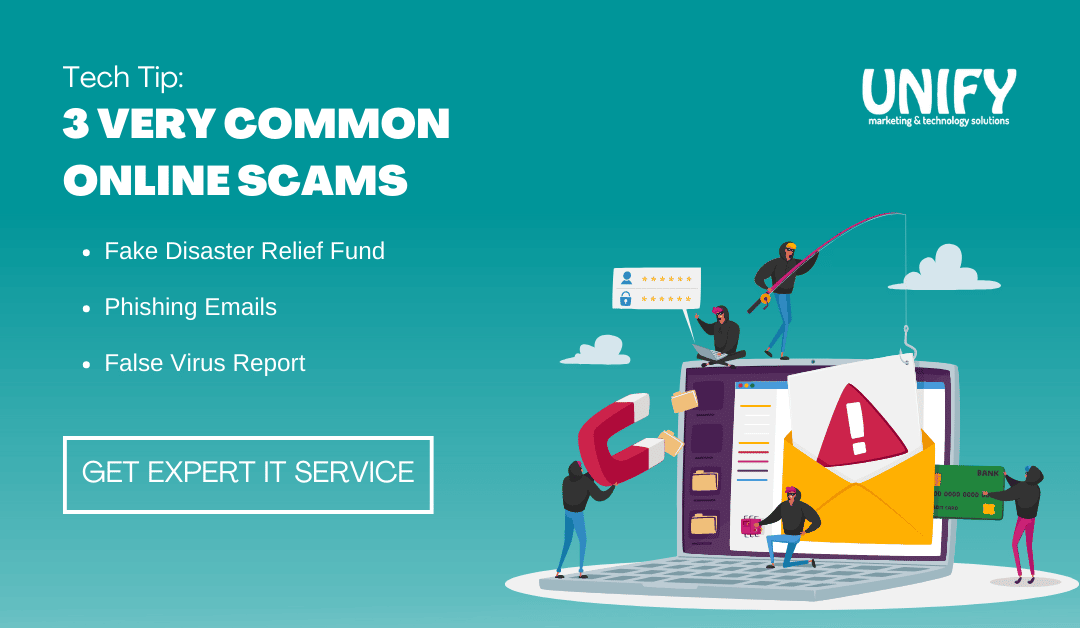The internet can be a scary place. Scams are lurking around every corner, waiting to take your hard-earned money, steal your identity or even install malware to spy on you. Such scams are often difficult to detect, especially if you are careless on the internet. Here are some of the common online scams.
Disaster relief.
In the aftermath of a natural disaster, scammers are often quick to take advantage of people’s goodwill. They may set up fake websites or social media accounts claiming to collect donations for disaster victims. Or they may send emails or texts asking for personal information or financial contributions. Sometimes hackers will even pose as disaster relief workers to access people’s homes or businesses. Disaster relief scams can be difficult to spot, but there are some red flags to watch out for. Be suspicious of anyone who contacts you out of the blue asking for donations. Don’t give out personal information or money unless you are confident that the person or organization is legitimate. If you want to help people affected by a natural disaster, donating to a reputable charity actively providing relief is best.
Phishing Emails
Nowadays, phishing emails have become a common scam tactic. Phishing emails usually come from a trusted source like your bank, credit card company, or government agency. The person behind the scam will claim that you have some issue with your account. They appear urgent and encourage you to solve the issue immediately. Then they continue to ask for personal information.
There are hundreds of variations of this scam. For example, some people receive a text message from someone claiming to be the “Department of Revenue.” They’ll ask for an ID number or password, which they can use to verify your account. But in reality, it will be used by scammers for identity theft.
Fake virus report
Scammers often try to use fake virus reports to take advantage of people who are worried about belonging to a particular group or who have previously encountered malware. They may send a notification that claims that your computer is infected with a virus or trojan and will provide a detailed list of instructions, including where you need to go online. This may compromise your device and, even worse, hackers obtain your personal information and demand ransomware.
Fake shopping websites
Some people have encountered pages claiming to be legitimate retailers. However, when you go to the site, it is not what you expected. The site will obtain your personal information, such as your shipping address and credit card details, in order to process the order but will not be able to offer you a product. They may even ask you to send money online. Fake shopping websites may lead to financial loss as well as put you at risk of identity theft.
Security is a crucial factor to consider when operating or interacting online. To avoid being at risk of online scams, users must be informed about how their data and information could be compromised. The key parts to online safety are identity protection and online security. With the right cyber security, you can be sure that you are secure when interacting online.
At UNIFYmts, we offer cyber security services tailored to meet all our clients’ needs. We are dedicated to providing our clients with the best and most secure services. We understand that your business and personal information is very important to you and we are committed to ensuring it is not compromised. You can also check us out on Facebook!




Recent Comments